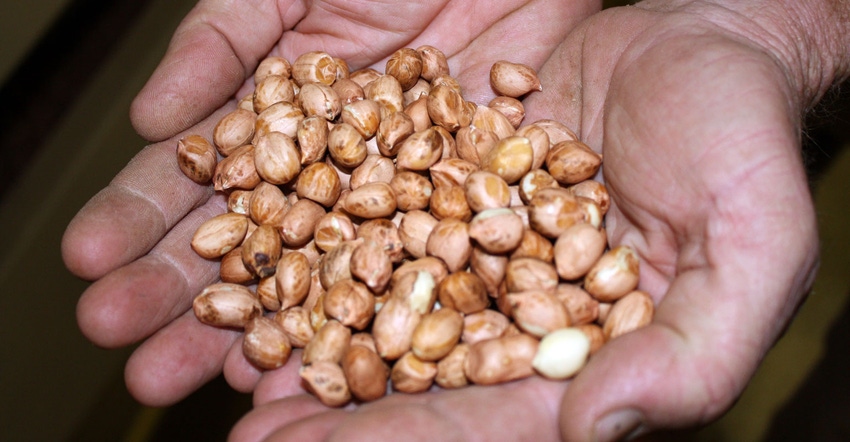January 4, 2023

The U.S. Congress passed the $1.7 trillion Fiscal Year 2023 Omnibus Appropriations bill.
Included in the bill are peanut provisions proposed by U.S. House Appropriations Agriculture Subcommittee Chairman Sanford Bishop (D-GA) and supported by the peanut industry.
These U.S. Peanut Federation supported research initiatives—aflatoxin and nutrition—are in their second year of funding. Total funding for FY 2023 is $4 million for aflatoxin research at the USDA Peanut Research Laboratory in Dawson, Ga., and $1.5 million for the USDA Agricultural Research Service to work on peanut nutrition priorities.
The funding for peanut research will support activities and projects working to mitigate aflatoxin in peanuts and enhance ongoing collaborations with land grant institutions to further advance research efforts.
“USPF appreciates the recognition of the importance of peanut research in the FY23 Omnibus Appropriations bill,” said Karl Zimmer, USPF chairman, in a Jan. 3 statement. “Although the U. S. peanut industry has effective protocols in place to manage aflatoxin, our ability to reduce its large economic impact while maintaining a safe and reliable supply of peanuts will take investment in innovative research solutions.”
The funding for peanut nutrition research will support projects working to identify how peanut consumption contributes to overall health, wellness, and reduction of chronic disease risk in various groups and across lifespans. Research topics will include chronic diseases, nutrition and wellness at all ages, health disparities, dietary patterns for optimal health, and nutrition for the future.
The omnibus package includes over $3 billion for disaster assistance “related to the loss of revenue, quality or production losses of crops, trees, bushes, and vines, as a consequence of droughts, wildfires, hurricanes, floods, derechos, excessive heat, tornadoes, winter storms, freeze, including a polar vortex, smoke exposure, and excessive moisture occurring in calendar year 2022.” The process for receiving disaster assistance will be determined by the U.S. Department of Agriculture following the appropriation of the funds.
“Peanut producers have experienced many difficulties this year, from adverse weather conditions to rising input costs,” states Joe Boddiford, chairman of the Georgia Peanut Commission. “The disaster assistance included in this appropriations legislation will help ensure peanut producers can continue to produce a good crop and keep the agricultural economy functioning and healthy.”
Also included in the legislation is language proposed by U.S. Senator Raphael Warnock (D-GA), Chairman of the Subcommittee on Commodities, Risk Management, and Trade to “encourage the Office of the Undersecretary for Trade and Foreign Agricultural Affairs to prioritize interagency coordination with the Office of the U.S. Trade Representative and industry engagement in order to develop effective and lasting solutions that will allow increased market access for domestic peanuts into the European Union.”
“The European Union and United Kingdom are historically one of the largest export markets for U.S. peanuts. It is essential to the health of the peanut industry that we address trade barriers restricting peanut exports to the European Union,” Zimmer said.
The omnibus agreement includes language related to funding nutrition and feeding programs in the United States and abroad. The legislation encourages USDA to work with the United States Agency for International Development to support the scale up of U.S. production and procurement of Ready-to-Use Therapeutic Foods, and to develop a multi-year strategy to support this effort. The legislation also requires an increase in funding for nutrition programs, including $28.5 billion for Child Nutrition Programs.
“We are very pleased to see the importance of investing in nutrition reflected in this legislation,” states Cole McNair, President of the National Peanut Buying Points Association. “The peanut industry has long been committed to educating and advocating for healthful lifestyles across all communities. It is important that we continue to invest in nutrition research and nutrition programs that make healthy foods, such as peanuts, accessible around the globe.”
Source: United States Peanut Federation
You May Also Like




